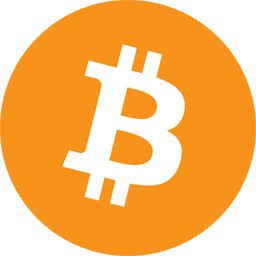

Just rather like the dollar, Bitcoin can be applied for a big choice of features, a few of that might be regarded authentic or not as per each jurisdiction's laws. In this regard, Bitcoin is no various than some other tool or aid and may be subjected to a whole lot of regulations in each nation. Bitcoin use could even be made complicated by restrictive regulations, by which case it is hard to check what number of of users would keep using the expertise. A executive that chooses to ban Bitcoin would avoid home businesses and markets from coming up, transferring innovation to other nations. The difficulty for regulators, as always, is to develop efficient solutions while not impairing the enlargement of new emerging markets and agencies. Bitcoin is freeing people to transact on their own terms.
That’s not necessarily a bad thing for the recent normal: a forex with a smaller range of market fluctuation and a slower, more steady growth rate may be attractive to organizations. But at the moment, Bitcoin Cash transactions aren’t supported by any beautiful merchants, apart from current cryptocurrency exchanges and wallets. Bitcoin is a sort of cryptocurrency, but what's cryptocurrency indeed?Cryptocurrencies are lines of code created by a pc that comprises fabric worth. These lines of code are generated with high performance computer systems, though that was not always the case more on that below. Cryptocurrency or digital forex is created using mathematical calculations. It’s then policed by hundreds and hundreds of computers that feature on a similar community, called miners.
In addition, Publication 525, Taxable and Nontaxable Income, addresses the tax penalties of a barter transaction.
Such an alert could prompt a user's software to down load the complete block in addition to alerted transactions so as to verify the inconsistency. Nakamoto adds that businesses that obtain common bills may are looking to feel operating their own nodes to achieve more impartial safety and faster verification. It's highly unlikely for an attacker to create an alternate chain faster than an honest chain. Nodes won't accept an invalid transaction or blocks containing them. Moreover, an attacker is limited in what he can try to do: He can only try to change one of his own transactions to retrieve coins he lately spent. The probability that an attacker succeeds drops exponentially the more valid blocks are added to the chain. Nakamoto says that an attacker would must get lucky early on to have a remote chance. Moreover, a receiver creates a new public key and gives it to a sender shortly before signing. This makes it complex for an attacker to execute a fraudulent transaction by a parallel chain. The peer to seem system for digital bills will depend on a allotted community of honest nodes to validate transactions. Validation replaces the deserve to trust costly third parties along with banks.
Having 4 years of seniority does not make it easier when it comes to decision making. Everything must be going through the client's approval. And it's quite hard sometimes. We can discuss with them on the technical aspect, however the execution is absolutely in step with their call to make. So the pinnacle tip is to construct the trust is to follow the team method. You know, the workflow. Which stages and whose choice. You get the hang of that, you know exactly what time to raise an concept that can raise as many eyebrows as you need to have. Take a better look at the workflow and the verbal exchange channels. Comment on the duty, be expert and detail in every doc/message. Communicate about your train, your functionality, or the value you create.